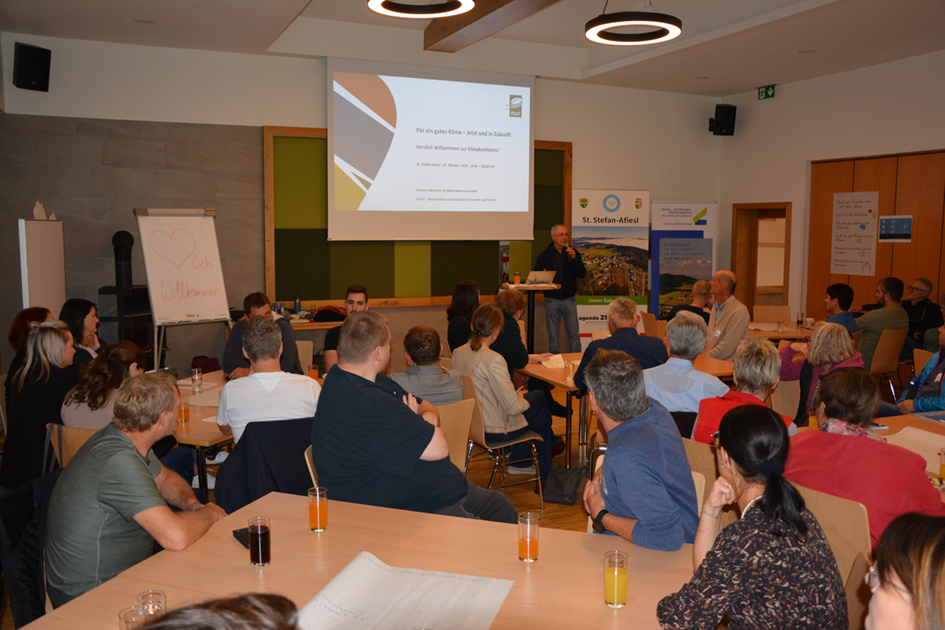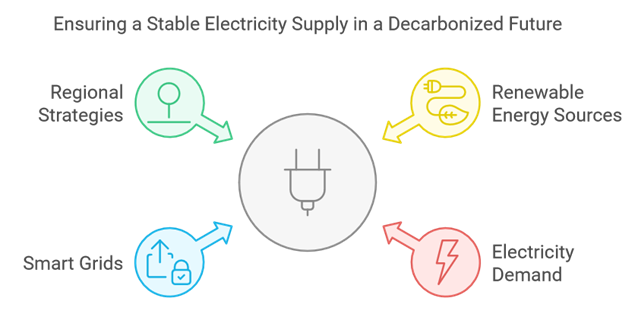
An insider look into a local climate conference in rural austria

Photo: group work at the climate conference, © Maria Piermayr/ Gemeinde St. Stefan-Afiesl
In October 2024, ÖGUT colleagues moderated and provided expert support in the climate conference of St. Stefan-Afiesl, a small rural municipality in Austria.
Counting around 1100 inhabitants, St. Stefan-Afiesl is a member of the “Zukunftsorte” association, a platform of 15 innovative Austrian municipalities that see themselves as pioneers in local development. Citizens of the Zukunftsorte are now to be increasingly involved in the implementation of climate protection measures. For this reason, the municipal council of St. Stefan-Afiesl has decided to invite the population to a climate conference in order to develop and prioritize measures to reduce energy consumption and greenhouse gas emissions.
All residents could help decide which climate protection measures are feasible for the municipality and have a say on which ones would be implemented.
As a preparation for this conference, ÖGUT collected the relevant local data in advance and examined reduction measures that are within the the responsibility of the municipality. The data collection revealed that the “biggest chunks” of energy consumption in St. Stefan-Afiesl are to be found in car operation and heating. Around 40,000 kilowatt hours are consumed per household per year.
The conference was structured around these questions: “How can climate protection become a win-win situation for us, where we save money and CO2 at the same time and perhaps also live a little healthier? How much reduction in our energy consumption do we dare to make and how could we go about it?”
The ÖGUT team provided various proposals for reducing energy consumption which were then discussed and further developed by the citizens. . Here are some examples:
- Mobility: if every household were to reduce 15 car journeys per year to the next bigger city Linz or organize them differently (in a car pool or by bus), 10% of consumption could be saved by 2030 in the area of car operation alone.
- Housing: The renovation of around 60 houses could reduce energy consumption in this area by around a tenth.
- In all other areas selected for the climate conference – e.g. travel and food – large savings are also possible with comparatively little effort.
The conference was a great success and received very positive feedback from the participants. A follow-up meeting between the facilitation team and the municipal government is scheduled for the end of November, aiming to move forward on the implementation of the climate conference’ results and deciding on concrete next steps to take for the Municipality of St. Stefan-Afiesl.
This activity provided very relevant insights for the LOCALISED project, as several citizen engagement practices provided in the Citizen Engager could be tested and the results will provide relevant learnings to be integrated into the tool.

Caption for pictures: Municipality of St. Stefan Afiesl, October 2024. Photos: © Maria Piermayr/ Gemeinde St. Stefan-Afiesl

Photo: opening speech of the mayor at the climate conference, © Maria Piermayr/ Gemeinde St. Stefan-Afiesl






















Recent Comments